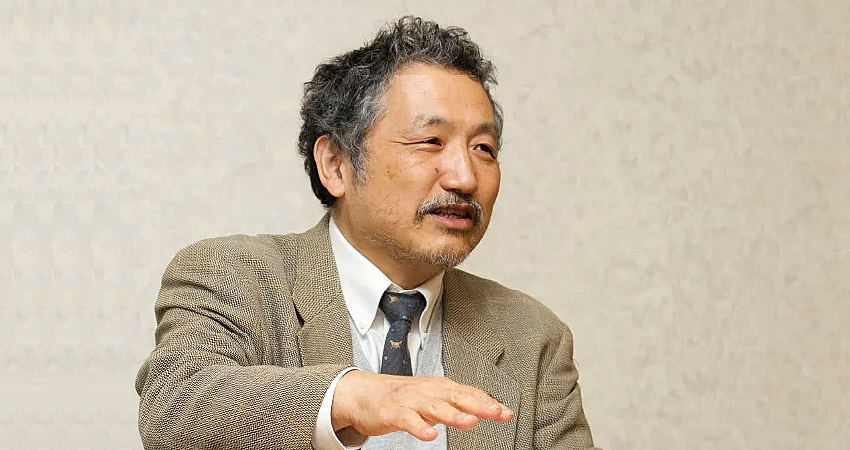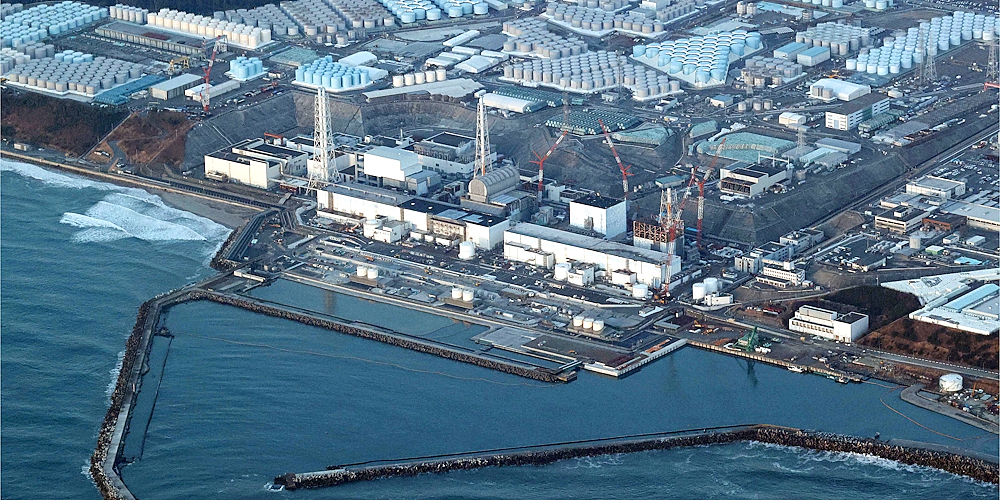
In September 2024, the Japanese government announced it had agreed to more expansive third-party monitoring of the Advanced Liquid Processing System (ALPS) treated water to be released from the Fukushima Daiichi nuclear power plant.
ALPS treated water is treated water that has been treated to purify 1.3 million tons of contaminated water resulting from the Fukushima Daiichi nuclear power plant accident, removing almost all radioactive materials.
The radioactive materials in the treated water, other than tritium, are below the international standard concentration and are no different from sea or river water.
Tritium cannot be removed, so it is diluted to a safe concentration and then released into the ocean.
This type of ocean release of tritium is done at nuclear power plants around the world, including China, and is a completely safe method.
Let’s look at the treated water from a quantitative perspective. The amount of tritium contained in ALPS treated water released to the ocean is less than 22 trillion becquerels (Bq) (6 milligrams) per year.
Carbon-14, among other radioactive materials, has been measured at less than 0.001 trillion Bq (6 milligrams) per year.
Other radioactive materials in treated water are also managed and are well below globally accepted management levels.
On the other hand, it has been reported that 47 trillion Bq (13 milligrams) of tritium is discharged into the ocean from the Taishan nuclear power plant in China, which is currently in operation.
Carbon-14 is released at 0.4 trillion Bq (2400 milligrams) per year.
In other words, the amount of radioactive material discharged into the ocean as ALPS treated water is less than the amount of radioactive material discharged from the Taishan Nuclear Power Plant each year.
Tritium is always produced when a nuclear power plant is in operation.
Since tritium cannot be separated, it is diluted and discharged into the ocean.
It is the same as ALPS treated water and there are no safety issues.
ALPS treated water is water that has been treated to remove radioactive materials.
It is important to ensure that it is properly treated and contains almost no radioactive materials. For this reason, three organisations, Tokyo Electric Power Company (TEPCO), KAKEN Co., Ltd. and Japan Atomic Energy Agency (JAEA), have independently and carefully analysed and evaluated the water over a period of more than two months and confirmed that it is sufficiently safe.
The results of the analysis by the three organisations are consistent within the margin of error.
In addition, the concentration of tritium in the seawater after the release was independently analysed and evaluated not only by TEPCO, but also by Fukushima Prefecture, the Ministry of the Environment, the International Atomic Energy Agency (IAEA) and others, and confirmed that there are no safety issues.
In addition, the IAEA has set up an office at the Fukushima Daiichi Nuclear Power Plant to monitor the release of ALPS treated water into the ocean.
The IAEA has many reports on its website about the water treated by ALPS. For example, samples taken by the IAEA have been analysed by several laboratories, and it has been confirmed that TEPCO’s analysis results are correct.
These tests are called “inter-laboratory comparisons.”
In a report published in January 2024, the results were analysed at laboratories in Monaco and Vienna under the umbrella of the IAEA and compared with the results of a Korean analytical laboratory.
The results were found to be consistent within the margin of error.
In addition, the IAEA regularly verifies that the ALPS treated water release activities conducted by TEPCO and the Japanese government are sufficiently safe.
Such international activities by the IAEA will continue in the future.
China also participates in the IAEA. Chinese researchers participated in the IAEA investigation of ALPS treated water, which was conducted before the release of ALPS treated water last year.
Up to now, China has been involved in the release of ALPS treated water through the IAEA.
This time, the Japanese government expressed its welcome to the IAEA to expand the long-term investigation and analysis.
It is desirable to expand international evaluations, including those of China and South Korea.
As mentioned above, the amount of radioactive material such as tritium released from ALPS treated water is less than that released from the Taishan nuclear power plant.
Tritium is continuously produced by the solar wind in the upper atmosphere, so sea and river water originally contains 0.1 to 1 Bq of tritium per litre.
The tap water we drink also contains extremely small amounts of tritium.
The World Health Organisation (WHO) states that tritium levels below 10,000 Bq per litre are safe and pose no health risk.
In the past, due to atmospheric nuclear testing by China and other countries, the tritium concentration in rain exceeded 100 Bq per litre, but has now dropped to the original tritium concentration (0.1 to 1 Bq/L).
The impact of ALPS treated water on the environment is negligible compared to the amount of tritium it originally contained, and its safety has been confirmed.
It is important to confirm the safety of ALPS treated water with a high level of transparency.
We hope that the safety of ALPS treated water will be communicated to the world through the IAEA.

(Koji Okamoto is Professor at the University of Tokyo, Japan.)
ADVERTISEMENT
ADVERTISEMENT








































